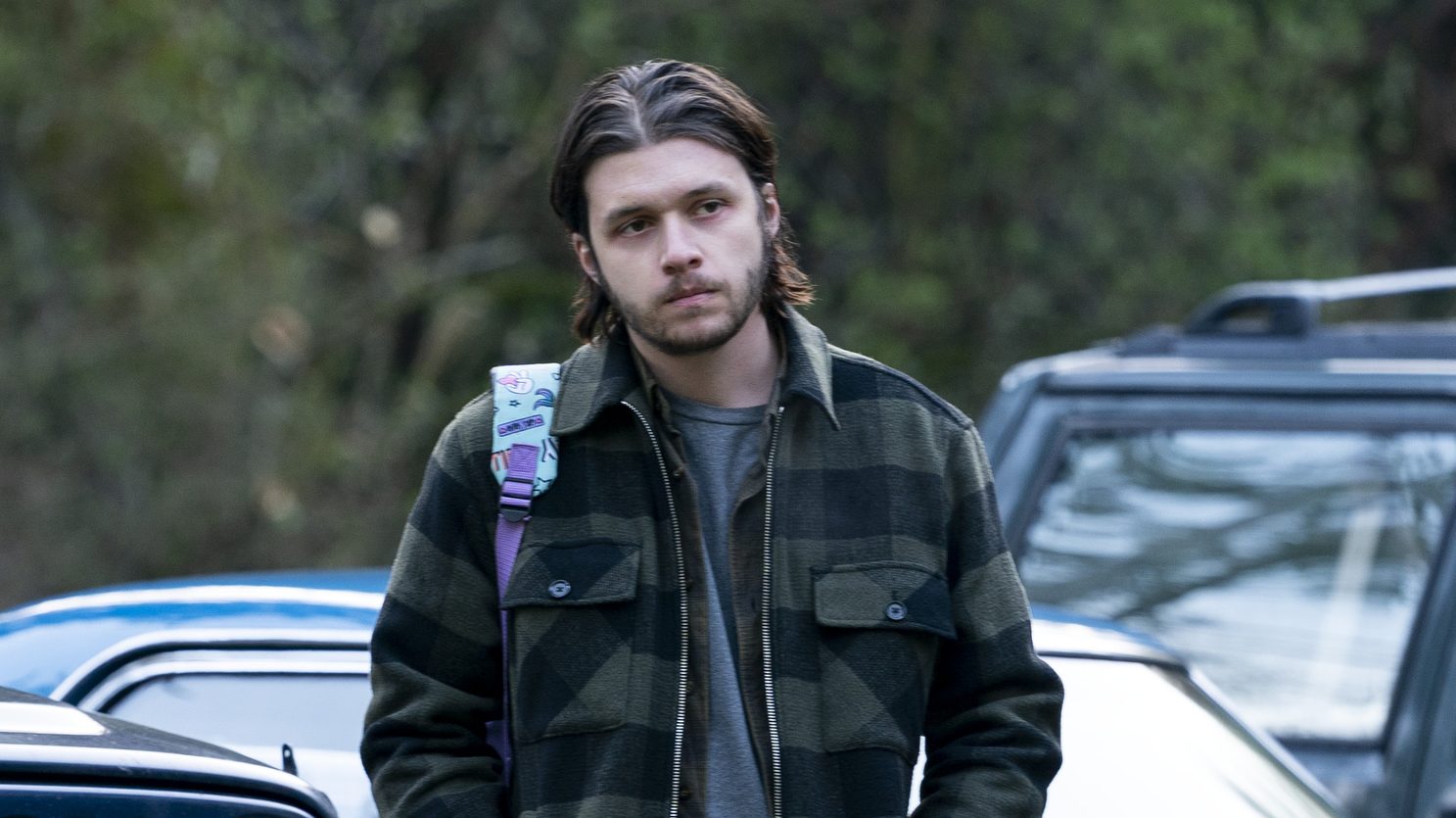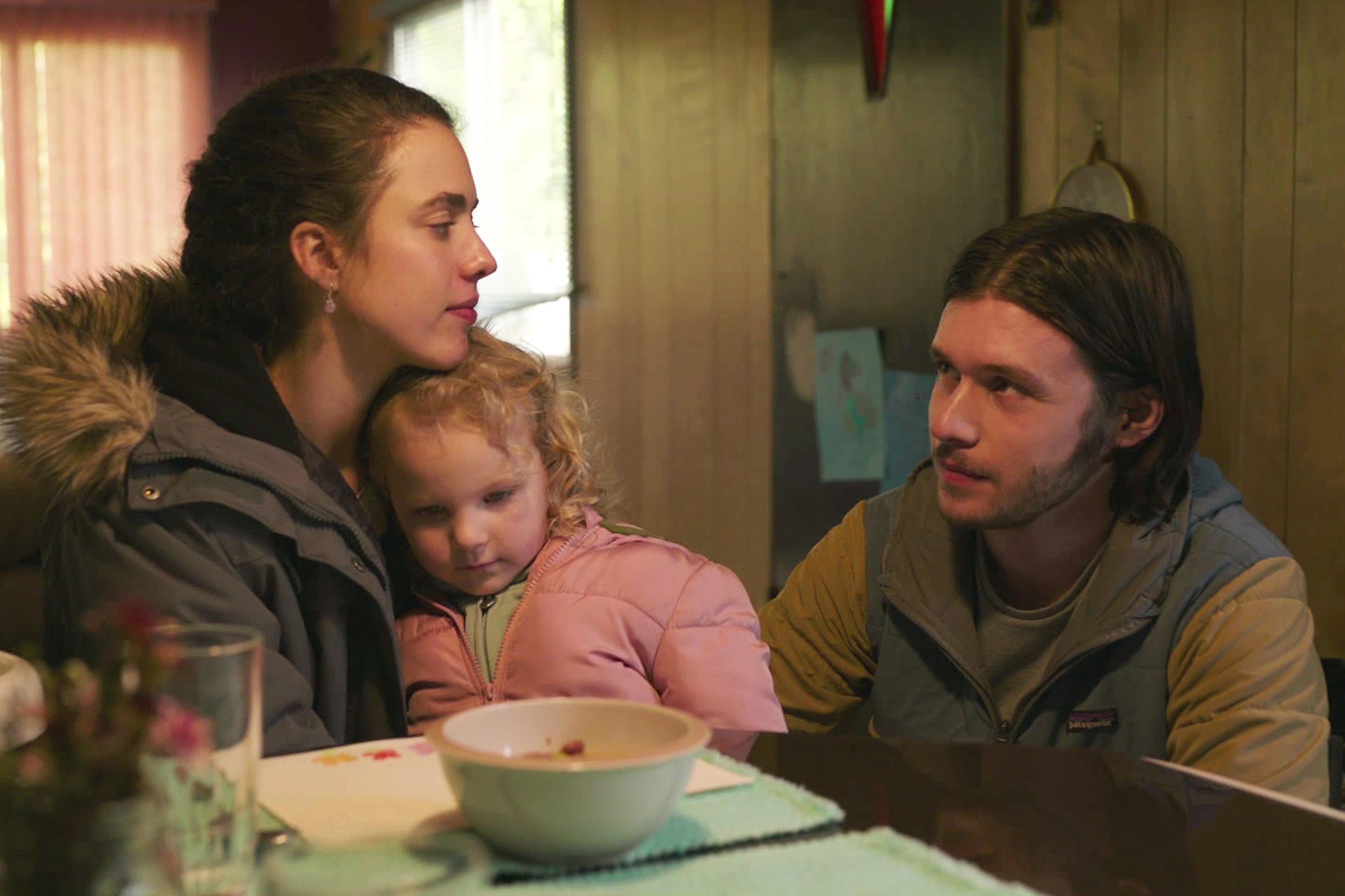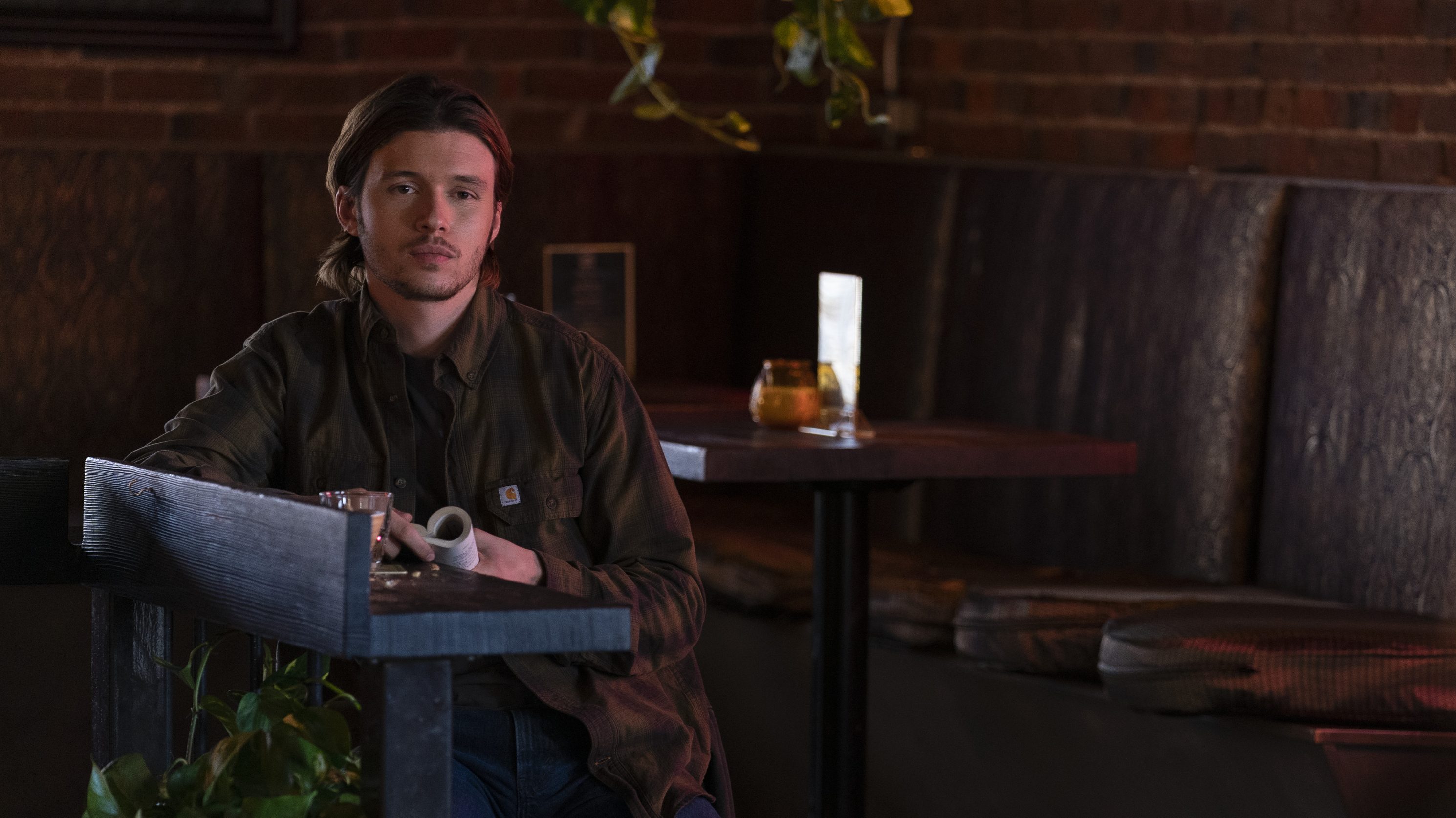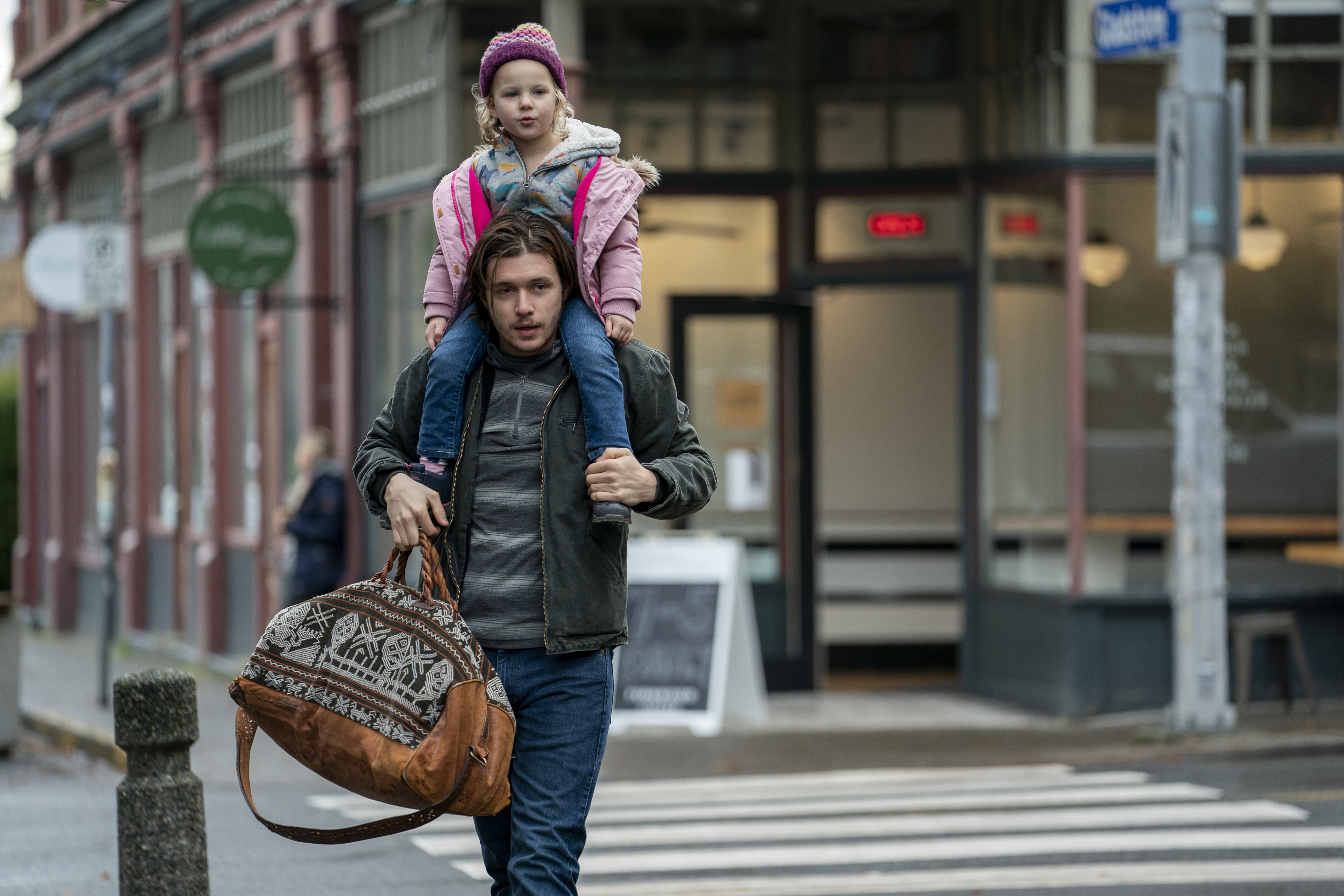News feed

Nick Robinson describes his character as the biggest villain in Maid. Sean is an alcoholic. He’s emotionally abusive and vindictive toward his ex, Alex (Margaret Qualley). In so many ways, he’s the reason Alex finds herself scrubbing toilets and navigating a byzantine welfare system to provide for herself and their two-year-old daughter Maddy.
But Maid, which is based on Stephanie Land’s 2019 memoir, isn’t a simplistic Lifetime-esque tale of a wronged woman. The series is a nuanced, at times gruelling examination of what it takes for poor people to get by in America. The real villain here is income inequality, and while the show never lets Sean off the hook or excuses his reprehensible behaviour, it does make room for him to be a complex, multidimensional character: an addict trying his best to clean up his act; a father who loves his daughter; a working-class guy who can’t seem to break the cycle of poverty and abuse that shaped him.
With Maid holding steady at No. 2 in Netflix’s list of its top 10 shows, Robinson chatted with GRAZIA about the reaction to his difficult character and why he thinks the show is a piece of visceral political art.

What has the reaction to the show and to your character been like?
It’s been mixed — for Sean especially. He’s the biggest villain in Alex’s life. So, the reactions that I’ve been hearing from people have been very mixed. It’s been a lot of “I love Sean. I hate Sean. I love Sean. I hate Sean.” It’s great for me to hear, because I was worried people weren’t gonna love him at all. I was worried it was gonna be just all hate. So, the fact that people are still kind of rooting for him on some level was great to hear. I’m not on Twitter — I only have Instagram. But I’ve had people sending me screenshots of tweets and people’s reactions and they’ve been all across the board — some funny, some really heartfelt and poignant. I’ve had a couple people reach out that were deeply moved by the show, one of whom is a mother. And I feel like it just kinda hits home a little bit differently if you have kids. But by and large the reaction has been incredibly positive, and in some cases kind of profound, just hearing people’s personal stories. They feel comfortable sharing their stories because of this show. It’s really exceeded my expectations.
When you read the description of the show, Sean is the abusive partner that Alex leaves. That’s the inciting event of the series, and it kind of makes you expect Sean to be a villain. But it’s more complicated than that. How would you describe the role Sean plays in Alex’s story?
Sean is sort of the biggest obstacle — at least at first — for Alex. He kind of blocks her, time and time again, in her quest to make a better life for Maddy and to change her circumstance. But I think Sean very much loves his daughter, and his family means a lot to him. And I think a lot of his anger and drinking issues are misplaced. He’s just out of control.
One of the things that [director and executive producer] John Wells said to me when we were talking about Sean as a character was that he has been taking care of other people his entire life. The show doesn’t go into it so much because it’s a show about Alex. But his mother was a drug addict, had substance abuse issues. He was caring for his little brother all the way up through school, dropped out of high school to care for him. And just as he was starting to be able to live life on his terms, he gets Alex pregnant. And so, there’s just all this resentment and anger. And it’s not right at all. But that was something that made me have some compassion for him. He just can’t seem to escape his circumstances, this vicious cycle of poverty and trauma from his parents and his upbringing, and not being able to ask for help and having no coping mechanisms other than alcohol; having that behaviour as what was modelled to him as a kid. He’s a complicated character and there’s no easy answers.
What does Sean want from Alex? How does that relate to the way he treats her?
Yeah, it is a weird thing. It’s like, if he wanted her in his life, he would change his behaviours. And I think he does try. But he falls back into these old habits and patterns. I felt like I had grown up sort of knowing people like this, and loyalty to family is a huge thing — even when that loyalty is kind of maybe not the best for the person. You stick it out. Family is family. I think that that’s one thing: even if he’s unhappy in the relationship, they made a family, and his parents probably broke up, and he’s not gonna do that.
I also think that it’s about control as well. For Sean a lot of it is about being the man of the house and being in control of what goes on in Alex’s circumstance so that she can’t abandon him. I think a lot of it has to do with control.

We see a lot of flashbacks to Sean being violent. Talk to me about filming those scenes. What was that like? How do you get yourself to that state?
It wasn’t my favourite stuff. We would make sure that Rylea wasn’t around. We would try to minimise her exposure to any of the yelling and screaming as much as possible. I was listening to a lot of Eminem and I would just do push-ups, and I had an elastic resistance band that I would just pull. I’m not naturally an angry person. It’s not something that comes easily to me. That’s definitely not my first instinct when I’m upset. So, just trying to find ways to really get my blood flowing, so to speak. I probably looked like a crazy person, but I was just trying to channel some of that anger. It was a challenge, but kind of a welcome one. In this perverse way it was kinda cathartic to be yelling. Not so much when I was yelling at [Margaret], but there were scenes from her POV where I’m just screaming into a camera lens, and that stuff — I felt weird afterwards, but that release was kind of perversely cathartic.
What’s it like watching those scenes?
It depends on the scene. I don’t love watching myself. I don’t run away from it, but it’s not something that I really seek out. So, watching some stuff, I’m like, That doesn’t look like me, doesn’t sound like me. That’s good! Other times, I’m watching it like, Oh, god! But that’s always how it goes.
Your scenes are mostly focused on Alex’s struggle first to get out of this relationship and then to deal with Sean’s instability. What did you take away from seeing the rest of the series — all the scenes of Alex working and struggling against all these other odds that are stacked against her?
Yeah, that was one of the best parts, for me, of watching the show. There was so much of it that I wasn’t involved in, so I got to see a lot of the show for the first time really as a viewer. A lot of the stuff between Margaret and Andie [MacDowell] really hit for me. Especially towards the end, I just feel like there was something special happening there between the two of them. So, that was fun for me because I had not seen any of that.
And the series as a whole, I mean, I knew what it was about going into it. I’d read all the scripts and I knew what to expect, but it still was much more affecting than I’d even anticipated. To see, in all the detail, Alex’s journey and all the obstacles set in her way, and her being able to overcome each one and eventually break the cycle — it just felt like a huge victory.
All the scenes of Alex dealing with the welfare system, the hoops she has to jump through, really do provoke an emotional response. I found myself getting anxious and overwhelmed just watching.
It’s asking a lot of people. It’s asking something from the audience. It’s visceral.

Obviously, the show is all about the sort of things working people have to do to survive in America. I’m curious what kind of conversations you had on set about income inequality.
I mean, there is an irony in a bunch of actors getting together to make a story about working class people. That was not lost on me. But we did try to make it as realistic as possible and show the situations that Stephanie really lived through. It’s all spelled out in the book, the insane bureaucracy that she had to deal with, all of the forms and the sub-forms. It’s a shame how incredibly difficult — and it’s intentional—how difficult the welfare system is to navigate. It’s intentionally making you work really, really, really hard for not a lot of assistance. And I hope that the show can dispel some of the myths around poverty, like welfare queens, for example; people just living off of a government check. It doesn’t really exist, because as soon as you hit a certain threshold of income, your benefits disappear. It’s this weird catch-22 and this balancing act that Alex has to do and that Stephanie wrote about in even greater detail in her book, about just the real cruelty of these systems that are designed to be difficult and be cruel in some instances. If one thing had gone differently for Alex — a missed ferry or having even fewer resources available than she already had — she might not have been able to get out at all. It could have been a very different story. That’s definitely stuff that we talked about.
Do you think of this show as political art?
I mean, I think that everything is political these days. Everything. So, in that sense yes. I don’t think it’s trying to be political in the sense of Right/Left, red/blue, Democrat/Republican. I just think it’s only political in the sense that it’s a show that stands firmly on the side of working class people, and trying to show what it is that they’re going through. It’s dealing with these issues that inevitably lead back to politics and why these circumstances exist in the first place, and a lot of it is Republican dismantling of social safety net programs that, again, have been designed to be difficult and confusing and cruel and not provide a whole lot of help because of this very American idea of pulling yourself up by your bootstraps and self-reliance. Which are all great qualities to have, but in reality, when you’re in these situations, a lot of times it’s just not feasible.








